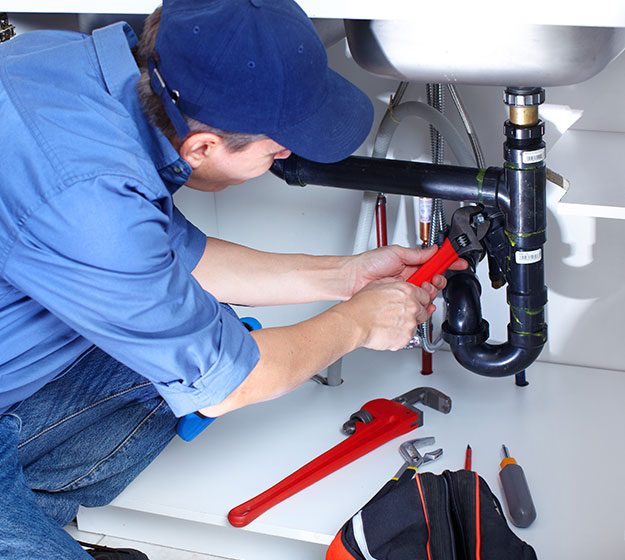Boiler Replacement Poole: A Comprehensive Guide

If you’re a homeowner in Poole, ensuring your heating system is functioning efficiently is crucial, especially as the colder months approach. Boilers are essential for keeping your home warm and supplying hot water, but as they age, their efficiency decreases, leading to increased energy bills and potential safety concerns. When your boiler reaches the end of its lifespan, a replacement becomes inevitable. This guide will help you understand when to consider a boiler replacement Poole, what to expect during the process, and how to select the right boiler for your home.
When Is It Time to Replace Your Boiler?
It’s not always easy to determine when a boiler needs replacing, but certain signs can indicate that your system is no longer performing as it should. Recognising these signs early can prevent breakdowns and ensure your home remains comfortable. Here are some key indicators that it might be time to replace your boiler:
Age of the Boiler: Most boilers have a lifespan of 10 to 15 years. If your boiler is older, it may be time to consider an upgrade.
Frequent Repairs: If you find yourself calling for boiler repairs more than once a year, the cumulative costs can quickly outweigh the price of a new installation.
Decreased Efficiency: Older boilers often operate at lower efficiency levels, leading to higher energy bills. A replacement can help reduce energy consumption and lower costs.
Inconsistent Heating: If some rooms in your home are warmer than others or if your boiler struggles to maintain a consistent temperature, it may be losing its ability to heat effectively.
Strange Noises: Banging, clunking, or hissing sounds can be a sign that internal components are wearing out or that the system is working harder than it should.
Radiator Issues: If your radiators take a long time to heat up or aren’t heating evenly, it could be due to a failing boiler.
Understanding Boiler Replacement Options in Poole
Choosing a new boiler is a critical decision that impacts your home’s comfort and energy efficiency. There are several types of boilers available, each suited to different property sizes and heating requirements. Here’s a quick overview of the main boiler types to consider:
1. Combination (Combi) Boilers:
Combi boilers are highly efficient, compact units that provide both heating and hot water directly from the main supply. This type of boiler is ideal for small to medium-sized homes in Poole with limited space as it doesn’t require a separate water tank or cylinder.
2. System Boilers:
System boilers are suitable for larger properties with higher hot water demands. They use a separate hot water cylinder, allowing multiple taps to be used simultaneously without a drop in pressure.
3. Conventional (Regular) Boilers:
Conventional boilers, also known as heat-only boilers, are ideal for homes with traditional heating systems. They use both a water cylinder and a separate cold-water tank, making them suitable for properties with older radiators that require a lower water pressure.
Choosing the Right Size Boiler for Your Home
Selecting the correct size for your new boiler is essential to ensure optimal performance and energy efficiency. A boiler that’s too small will struggle to meet your heating needs, while an oversized boiler will waste energy and cost more to run. When determining the right size, consider the following factors:
Number of Bedrooms and Bathrooms: Larger homes with multiple bathrooms will require a boiler with a higher capacity.
Heating Requirements: Consider how many radiators you have and your daily hot water needs.
Insulation and Efficiency: Well-insulated homes may be able to use a smaller boiler, while properties with poor insulation will need a larger unit.
Benefits of Replacing Your Boiler in Poole
Investing in a new boiler can seem daunting, but it offers several advantages that make it a worthwhile decision. Here are some key benefits of replacing your old boiler with a modern, efficient model:
1. Improved Energy Efficiency:
Newer boilers are designed to be highly efficient, with many achieving over 90% efficiency ratings. This means more of the energy used is converted into heat, resulting in lower energy bills.
2. Enhanced Home Comfort:
A new boiler will heat your home more evenly and quickly, eliminating cold spots and providing a more comfortable living environment.
3. Lower Maintenance Costs:
Old boilers often require frequent repairs, leading to higher maintenance expenses. A new boiler typically comes with a warranty, reducing unexpected repair costs.
4. Reduced Carbon Footprint:
Modern boilers produce lower carbon emissions compared to older models, helping to reduce your home’s environmental impact.
5. Increased Property Value:
A new, efficient heating system can increase your home’s appeal to potential buyers, making it a smart investment if you’re considering selling your property in the future.
The Boiler Replacement Process Explained
Understanding the boiler replacement process can help you prepare and make informed decisions. Here’s what typically happens when you schedule a boiler replacement in Poole:
1. Assessment and Quotation:
A professional engineer will visit your home to assess your current system and discuss your heating requirements. They will recommend the best type and size of boiler for your needs and provide a detailed quote.
2. Old Boiler Removal:
The existing boiler will be safely disconnected and removed. Proper disposal is essential to meet environmental regulations and avoid hazards.
3. System Flush (If Necessary):
In some cases, the engineer may need to flush the system to remove any sludge or debris before installing the new boiler. This ensures optimal performance and longevity.
4. New Boiler Installation:
The new boiler is installed, and any necessary modifications to the pipework or controls are made. Depending on the complexity, this can take anywhere from a few hours to a day or two.
5. System Testing and Commissioning:
After installation, the engineer will test the system to ensure everything is working correctly. This includes checking water pressure, inspecting radiators, and adjusting settings as needed.
6. Handover and Certification:
Once the installation is complete, you’ll receive all necessary documentation, including warranty details, user manuals, and safety certificates.
Costs Associated with Boiler Replacement in Poole
The cost of replacing a boiler in Poole can vary depending on several factors, including the type of boiler, installation complexity, and any additional work required. Here’s a general breakdown of what to expect:
-
Combi Boiler Replacement: £1,500 – £2,500
-
System Boiler Replacement: £2,000 – £3,000
-
Conventional Boiler Replacement: £2,500 – £4,000
These prices typically include the cost of the boiler, labour, and any additional components required. For a more accurate estimate, it’s best to obtain multiple quotes from local boiler replacement companies in Poole.
Finding a Trusted Boiler Replacement Service in Poole
Choosing a reputable boiler replacement company in Poole is crucial to ensure a smooth and safe installation. Here are some tips to help you find the right service provider:
Check Qualifications and Certifications:
Make sure the company is registered with Gas Safe, which is a legal requirement for anyone working on gas appliances.
Read Customer Reviews:
Look for companies with positive feedback and high ratings to ensure you receive quality service.
Get Multiple Quotes:
Obtain quotes from at least three different companies to compare prices and services offered.
Ask About Warranties:
A reliable service provider will offer a warranty on both the boiler and the installation.
Why DIY Boiler Replacement Isn’t Recommended
While it might be tempting to attempt a DIY boiler replacement, it’s important to understand the risks involved. Installing a boiler is a complex task that requires professional expertise and knowledge of local regulations. Here’s why it’s best to leave boiler replacement to the professionals:
1. Safety Concerns:
Gas appliances must be installed correctly to prevent the risk of gas leaks and carbon monoxide poisoning.
2. Compliance Issues:
Professional installation ensures your new boiler meets local safety standards and regulations.
3. Warranty Requirements:
Most manufacturers require professional installation to validate the warranty.
4. Long-Term Performance:
A professional installation guarantees that your new boiler will perform efficiently and safely.
Conclusion
Replacing your boiler in Poole is a significant investment, but the benefits far outweigh the initial costs. With improved energy efficiency, enhanced home comfort, and reduced maintenance needs, a new boiler can provide peace of mind for years to come. By choosing the right boiler for your home and hiring a qualified professional for the installation, you’ll ensure your home stays warm and comfortable, no matter the weather. Take the time to research your options and make an informed decision that suits your heating needs and budget.

